At Unity Health Toronto, developing a strategy that is equitable, diverse and inclusive in nature to involve patients, their caregivers, and our communities in the design and implementation of our research studies is a priority.
As a first step to developing a strategy to engage patients, caregivers and community partners in research, we sent out a survey to 408 appointed scientists and clinical researchers across the three sites of Unity Health Toronto in late 2019.
Thirty-one per cent of our community responded to this questionnaire (84 per cent were St. Michael’s researchers, 12 per cent St. Joseph’s and 4 per cent Providence). In the interest of transparent data collection, highlights of the survey results are outlined below.
What did the survey show us?
This survey revealed that 44 per cent of our researchers have been familiar with patient and community engagement in research for up to five years. An impressing 39 per cent have been working with it for more than five years, and about 10 per cent are not familiar with the topic.
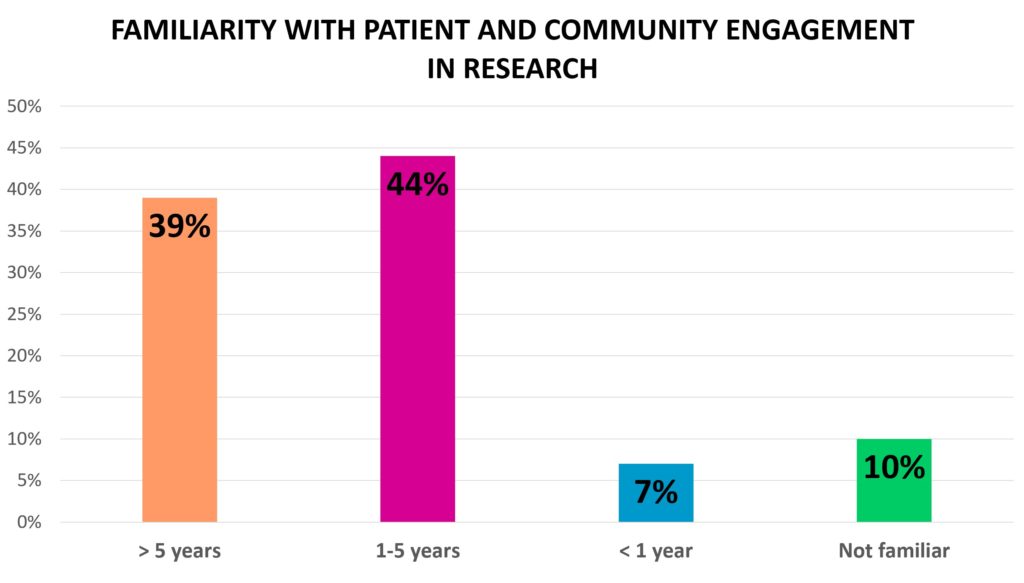
According to Khodyakov et al (2013), there are different levels of patient and community engagement in health research and health care, including: providing patient and community partners access to study subjects, involving them as advisors in research development, or engaging them in full cycle of research activities.
The survey suggested that most of the scientists who use methods of patient and community engagement in their research are health services/policy researchers (49%), followed by clinical researchers (33%), other (12%) and basic science researchers (6%). This may be related to the type of research different scientists do – for example, health services/policy research like that which comes from the MAP Centre for Urban Health Solutions is largely tied to the community, whereas basic science is lab-based biological discovery and not always as concretely linked to patient and community engagement.
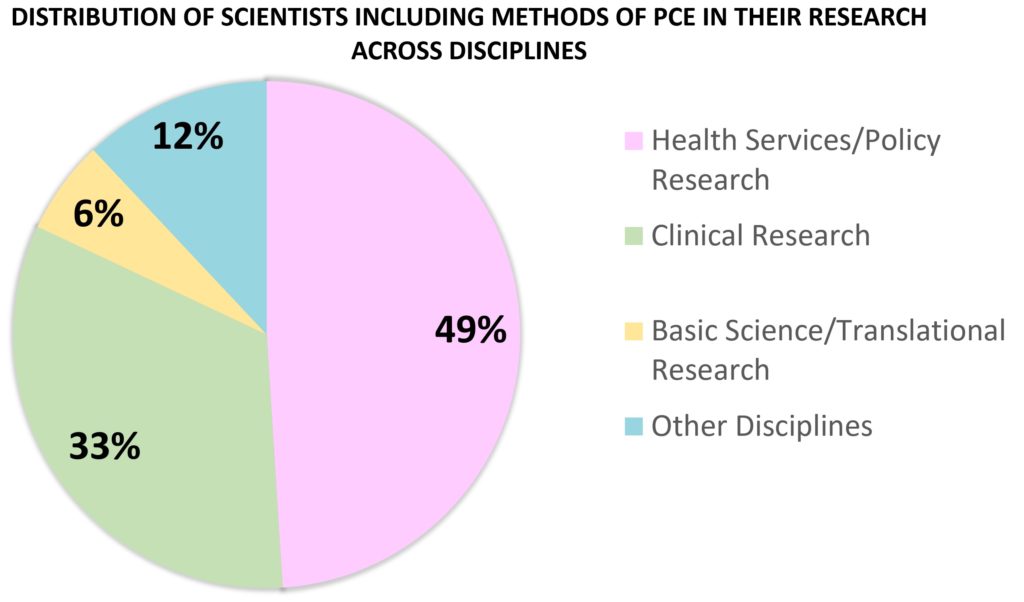
Seventy-two per cent of researchers include methods of patient and community engagement (e.g., consultations), and 53 per cent of researchers surveyed directly involve patients and communities from beginning to the last step of their research project.
While these numbers show an interest and commitment to patient and community engagement, we also saw that 62 per cent of respondents face challenges when integrating methods of patient and community engagement in their research. In response to the challenges, 88 per cent of our respondents said they were interested in contributing to capacity building in this area. Nearly three quarters of respondents said they’d be interested in participating in opportunities to learn more.
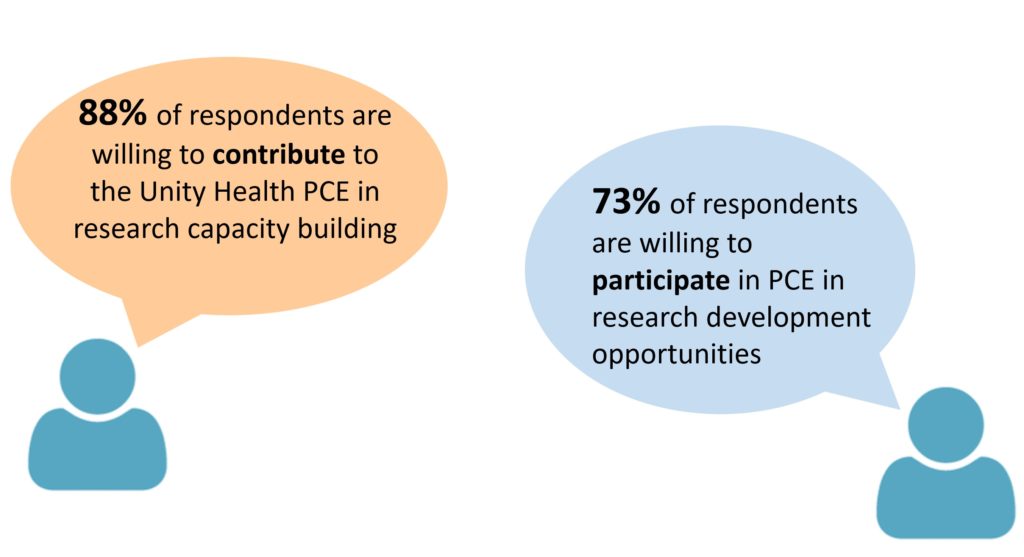
Areas our community is particularly interested in learning more about include:
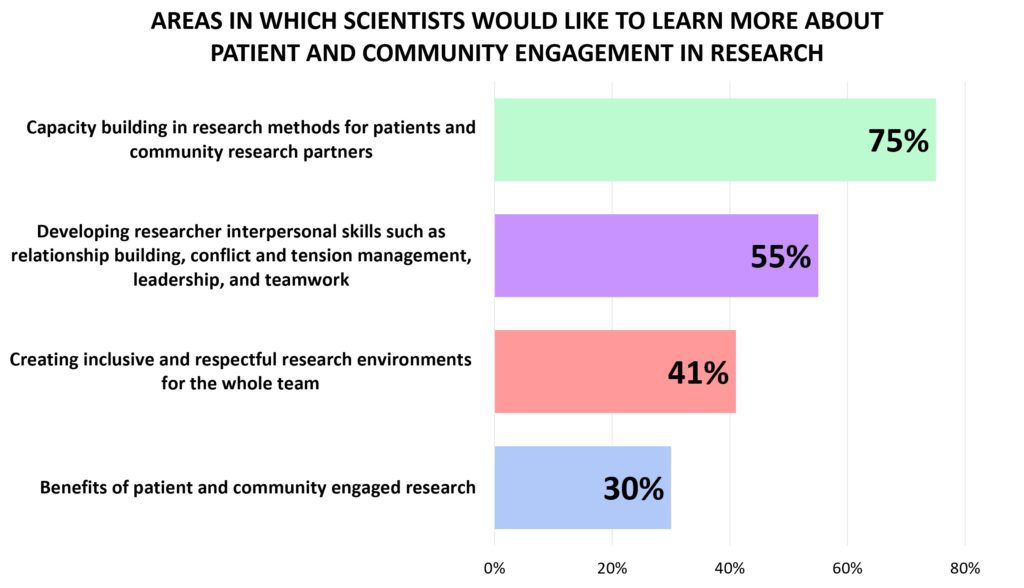
The survey also showed us that lunch and learns, workshops and online modules were the most popular options for training in this area.
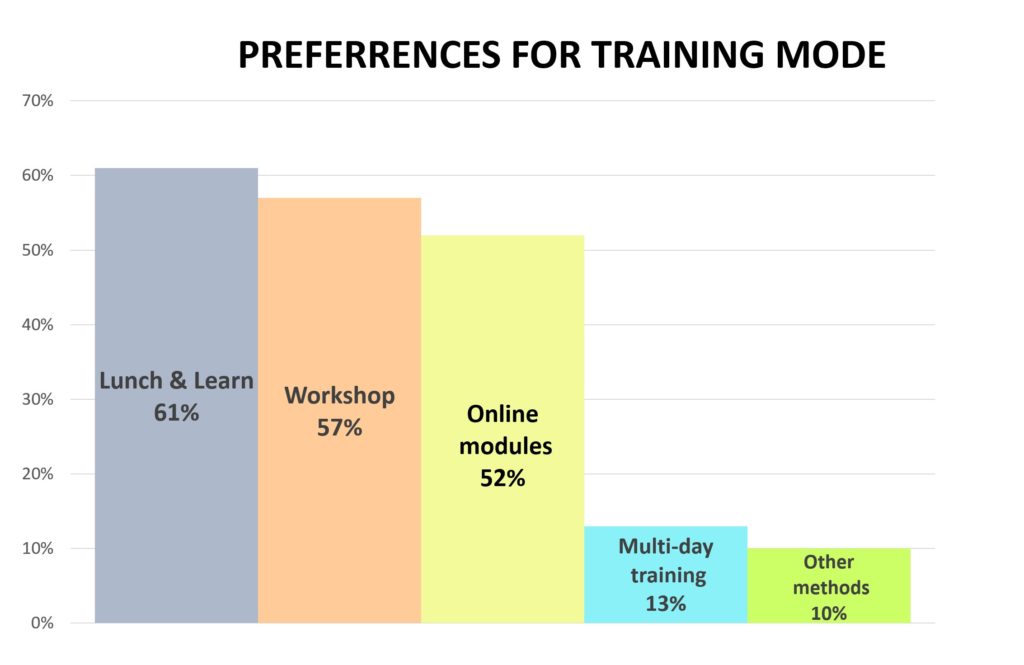
What’s next?
In February 2020, we established a working group to expand and improve engagement with patients and communities in research and identify ways to equitably engage them from the beginning of research. With this survey information, we aim to create strategies to promote and enhance patient and community engagement in our Research Institute. We will continue to involve our Research community in this process and look forward to their feedback throughout.
While the COVID-19 pandemic has delayed some of our work, it continues to be a priority for our institute. Our efforts in this area are aimed at making sure our work impacts those we are committed to serve: patients who have lived experiences with diseases, their caregivers who help loved ones navigate the system, those with different life experiences that may impact access to preventative health care and community members and partners who contribute to the continuum of care we provide.
Our next steps will include: